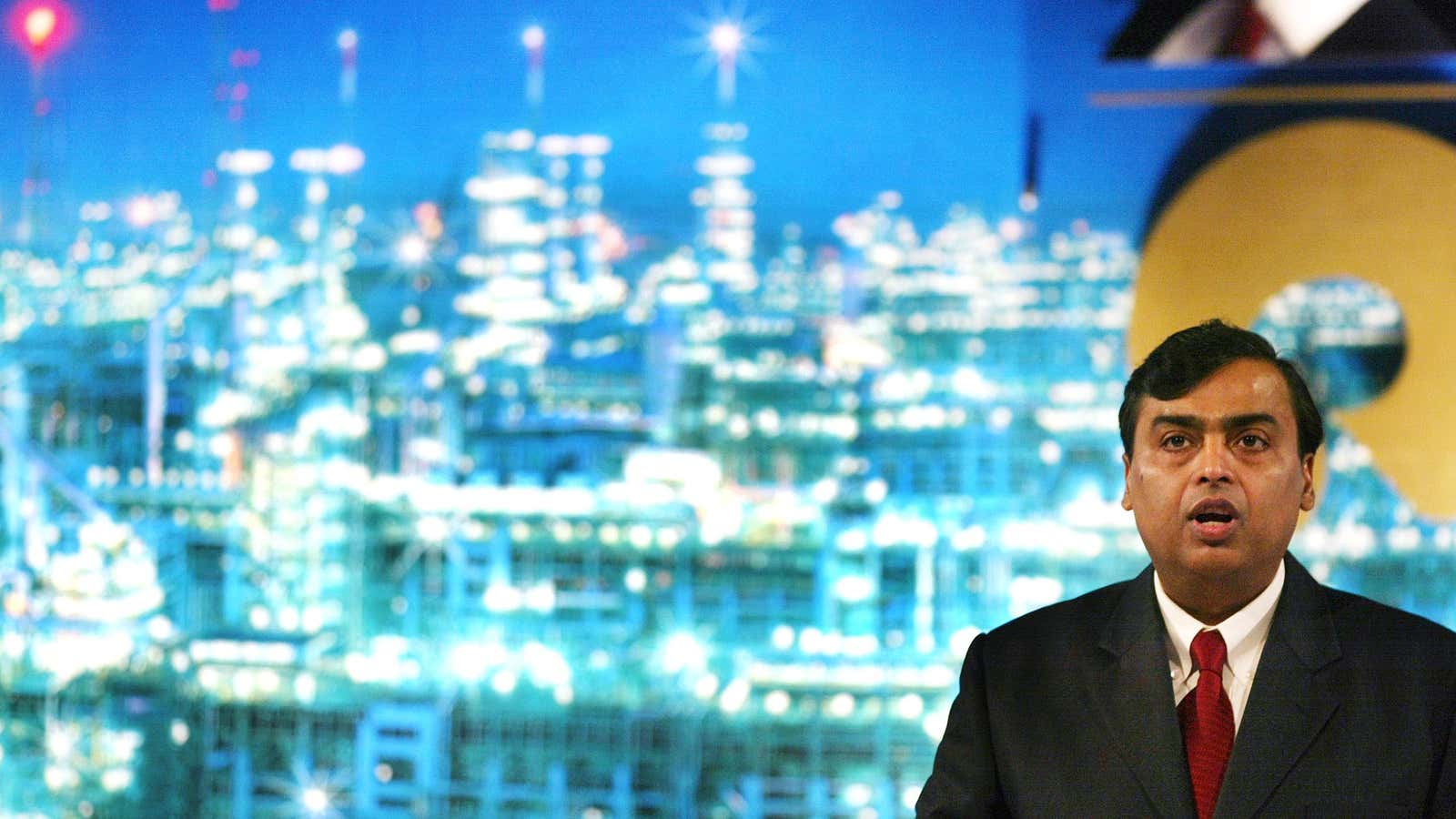Reliance Industries, the Indian conglomerate with major stakes in everything from oil refining to telecommunications, will invest the equivalent of $10 billion over the next three years in facilities to manufacture clean energy hardware, chairman Mukesh Ambani said on June 24 at the company’s annual general meeting.
The investment is aimed at making Reliance a leading global player in the production of solar panels, batteries, “green” hydrogen made from renewable energy that can be used as a low-carbon power source for factories and vehicles, and hydrogen fuel cells. “We are launching our new energy business with the aim of bridging the green energy divide in India and globally,” Ambani said.
India and China compete on clean energy
The scale of the investment, coming from one company, is considerable.
About $500 billion was invested in clean energy globally in 2020, according to Bloomberg, more than half of which went into solar and wind farms and other forms of power-generation capacity, rather than the manufacturing facilities that Reliance is planning.
There are new tax incentives and government mandates for renewables in India, and a likely desire to compete with China, which currently has five solar panel factories for every one in India, the second-biggest global producer.
On green hydrogen, a nascent industry that has struggled to find a foothold, “from a global perspective, it’s a huge development as the availability of cheap and affordable electrolyzers would help the industry cut down costs,” Abhinav Bhaskar, an analyst with the research firm Rystad Energy, told Quartz.
Earlier this month, India’s power minister said that the government will soon require some industrial facilities to purchase hydrogen to offset coal consumption. That includes industries in which Reliance itself already has extensive operations, including refining oil and producing fertilizer and steel—so its biggest customer could be itself.
The solar buildout is likely designed to tap a new $600 million fund the Indian government announced in May to support a domestic solar supply chain that can compete with China, said Jenny Chase, head solar analyst at Bloomberg New Energy Finance. But even a big company like Reliance may struggle to break into the solar panel business overnight, she said.
“Making polysilicon is difficult and requires substantial chemical expertise, and plants seldom ramp up in three years. Many polysilicon plants set up by new entrants fail altogether,” she said. “In short, I think this is more talk than anything else at this point.”
Investors appear to agree: The Reliance Industries’ share price fell 2.6% after the meeting.
Reliance deepens its ties to Saudi Aramco
Meanwhile, behind the clean-energy expansion, Reliance shows no sign of budging from its core business, oil refining, which in 2020 contributed more than half of the company’s revenue.
Just before announcing the clean energy investments, Ambani also disclosed that the company will appoint Yasir Al-Rumayyan, the chairman of Saudi Arabia’s state-owned oil company, Saudi Aramco, to its board—a sign that Reliance plans to remain a key customer for Aramco’s oil.
